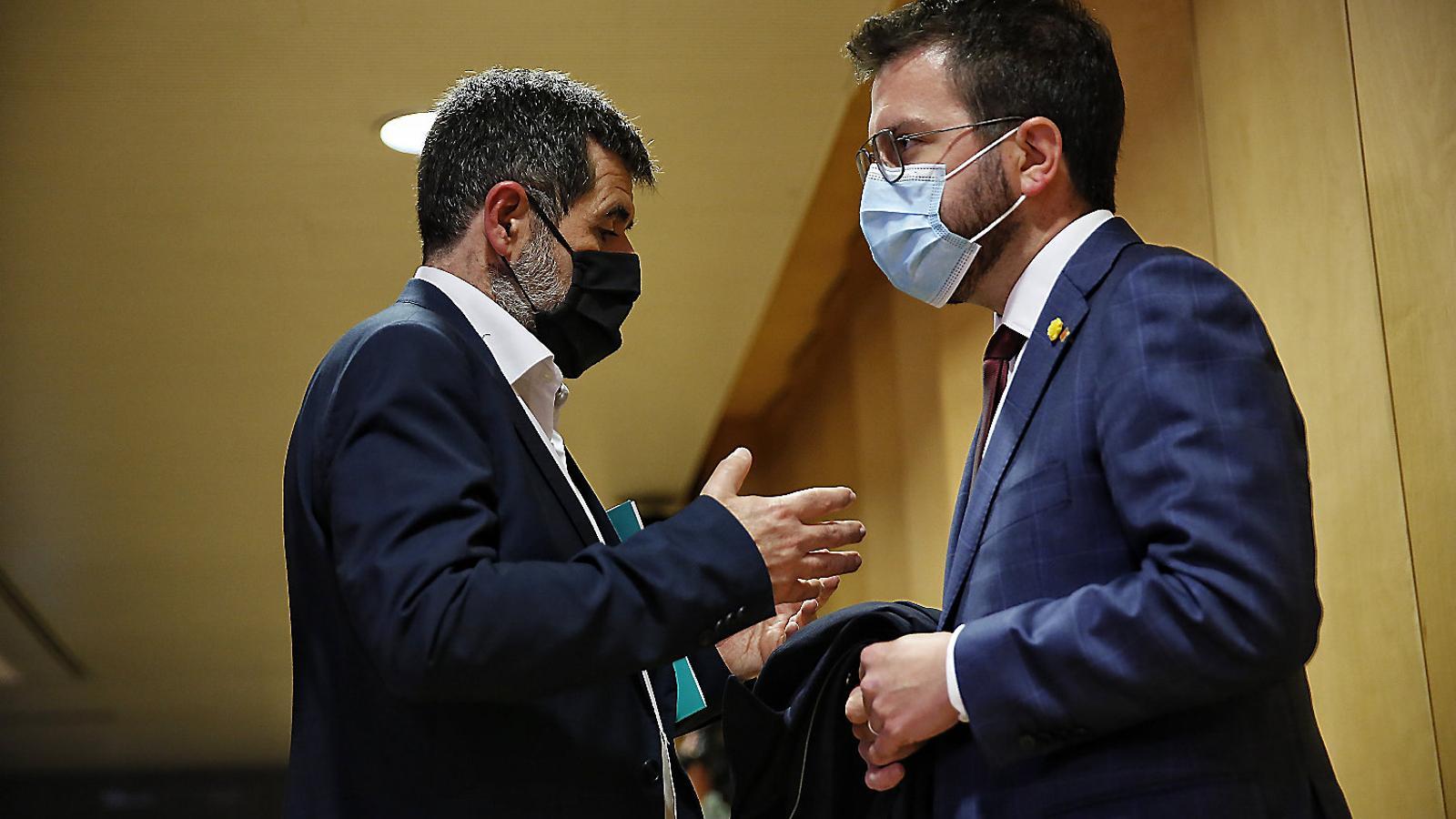Four scenarios for resolving the investiture at the last minute
JxCat and ERC remain locked in their positions on a day without formal contacts


BarcelonaThree months have passed since the Catalans decided at the polls the new correlation of forces in Parliament. Despite the fact that the elections left a renewed political landscape - PSC won, Cs collapsed and ERC overtook JxCat - nothing has changed substantially. The negotiations for the investiture between the pro-independence parties have been blocked since last Saturday and the time to reach an agreement is running out. There are 12 days left until the Parliament is automatically dissolved if a president cannot be invested. In this final stretch, the mess will be resolved with one of these four scenarios.
ERC rethinks and returns to the coalition
For weeks, ERC and JxCat have been playing a card game in which everyone believes that the other is bluffing and that, faced with the vertigo of going to the elections, the rival will eventually give in. A first option is that Esquerra will be the one to twist their arm because they do not want to jeopardise the possibility of investing a Republican president -Pere Aragonès-, an opportunity they have not had since 1932. Thus, in this scenario, the Republicans agree to return to negotiate a coalition government with JxCat, split the structure of the Generalitat 50-50, and find a consensus on what the role of the Consell per la República (Council for the Republic) should be. This is what they were negotiating until Friday 7 May, when ERC ran out of patience and decided to break with the whole negotiating scheme and opted to try to form a government on its own. Esquerra actively and passively denies that this is now a possibility.
JxCat gives in and puts in four votes
In this second scenario, JxCat is the one who is dizzy. In its case, for a different reason, and that is that, at the last minute, it fears that returning to the polls would mean a setback in electoral support that would be too significant because the pro-independence vote would be demobilised and a part of the electorate would blame it for the failure in the negotiations. Thus, to avoid this risk, Junts decides to give Aragonès four votes at the last minute - or 12, depending on what the comuns do - that would allow the Republican to become president and form a government on his own. In an interview in La Vanguardia, Junts' secretary general, Jordi Sánchez, considered this possibility: "We will not speculate with elections. If they want to, let them govern with a minority". For JxCat, this is no longer a viable possibility because it could be overthrown by its rank and file.
A deferred coalition government
This is the most complex scenario. As in so many other negotiations between JxCat and ERC, it is a way for no one to feel like a loser and for everyone to be able to vindicate themselves before their own people. In this case, JxCat agrees to leave the role of the Consell per la República and the pro-independence strategy on the sidelines of the negotiations. This is what the joint communiqué made with ERC and the CUP last Wednesday seemed to say, but which Junts ended up clarifying. In exchange, ERC would return to the outline of the coalition government that JxCat wants and would forget about the government alone, although it would not do so immediately, but negotiations would resume the day after the investiture. In an interview with El Nacional, the Republican negotiator Sergi Sabrià said: "There is an experience in the Basque Country. There is an investiture in July and in September it becomes a coalition government. It has happened in other places, it could happen here", he argued. In fact, this experience is analysed in an electoral thesis by another negotiator, Josep Maria Jové. In the Basque Country, Juan José Ibarretxe (PNB) received the votes of Ezker Batua to be invested, but this party did not join the executive until two months later - and it did so with only one councillor. The difference between the two scenarios is that in the Basque Country it was a simple tinkering, and here it was a profound change of ministries.
Elections and putting 50% at risk
In the fourth scenario, Catalan politics opens an unprecedented page in its history: electoral repetition. This is something that has happened in Spain, in 2016 and 2019. Neither JxCat nor ERC want it, but no one dares to say that it will not happen. "Nobody wants a repetition, but nobody is doing anything to avoid it", summarises a pro-independence leader who closely follows the talks. This Friday has been an example of this. The negotiating teams have not formally met and everyone is still stuck in their positions and preparing for next week, which will be decisive. If the investiture of Aragonès has to be done in two parts, the first plenary session would have to be held on Friday 21 May at the latest, and the second on Wednesday 26 May - Monday 24 May is a public holiday in Barcelona. It would also be possible to go to an agonising vote at the last minute on the 26th. This, however, would no longer be another unprecedented event. It was done with Carles Puigdemont on 10 January 2016. He passed the vote then.
